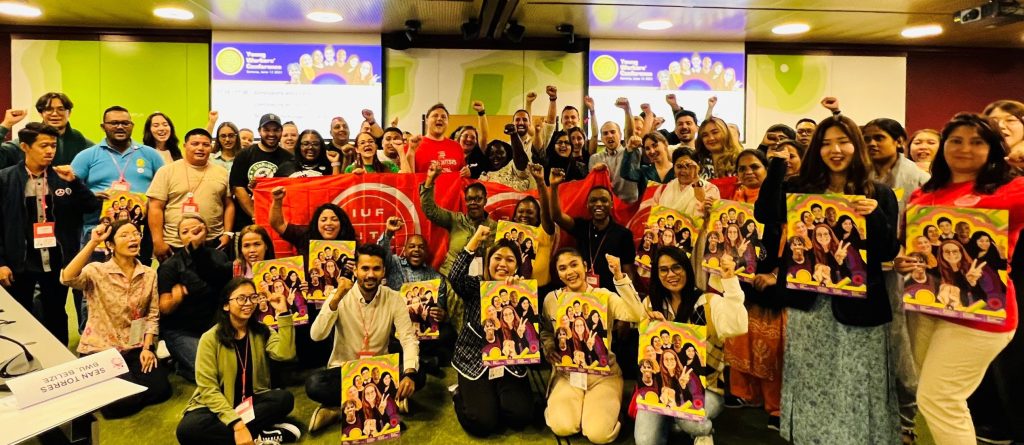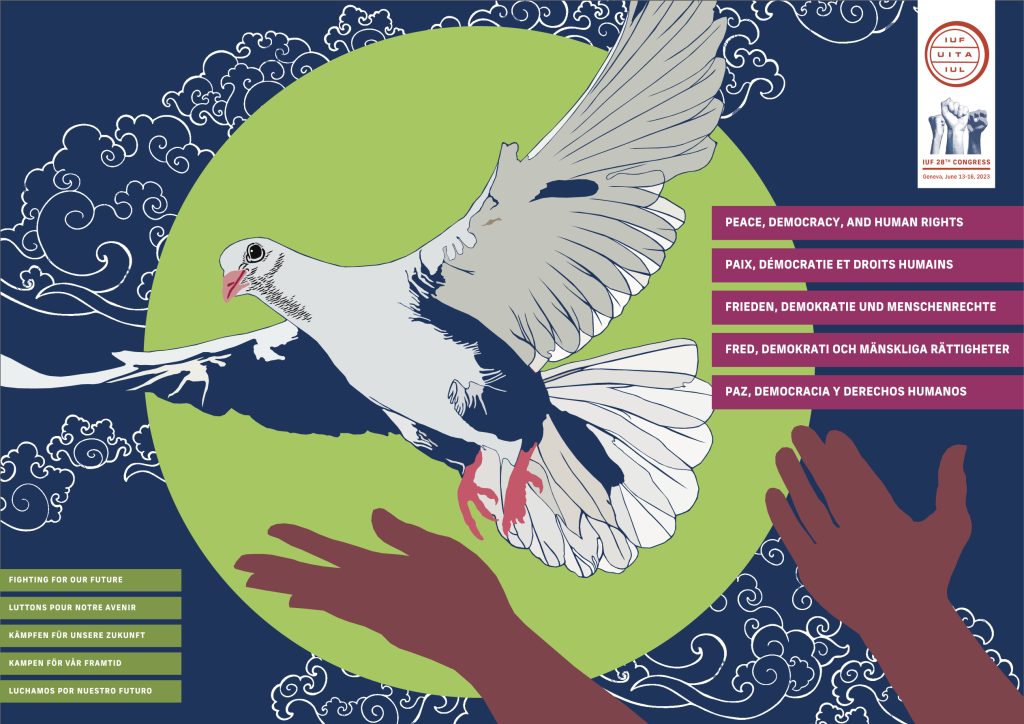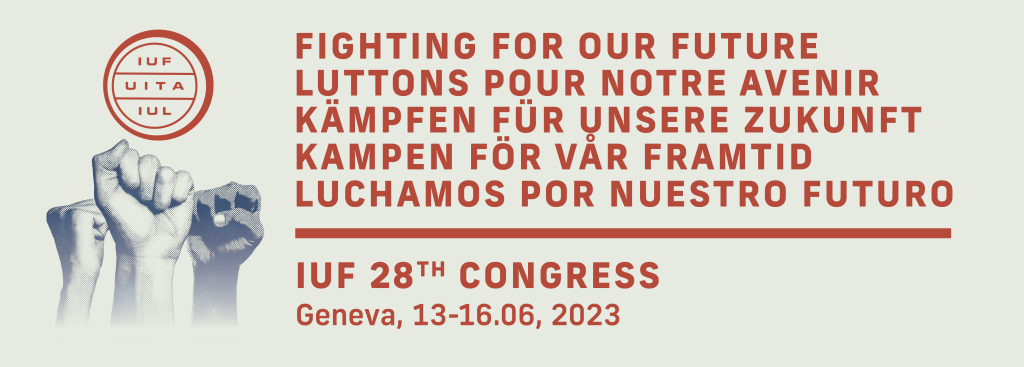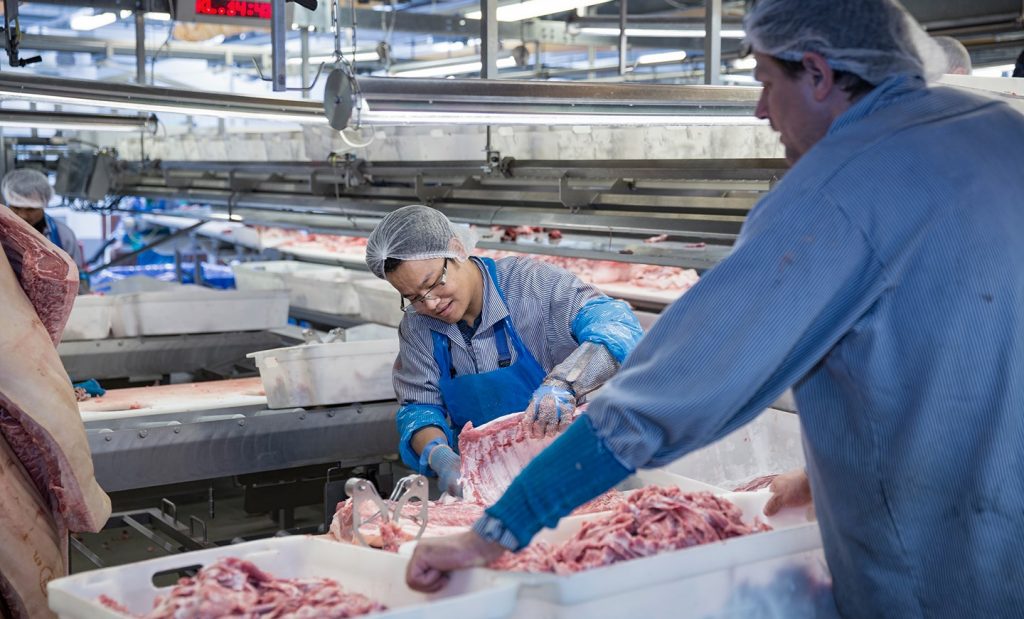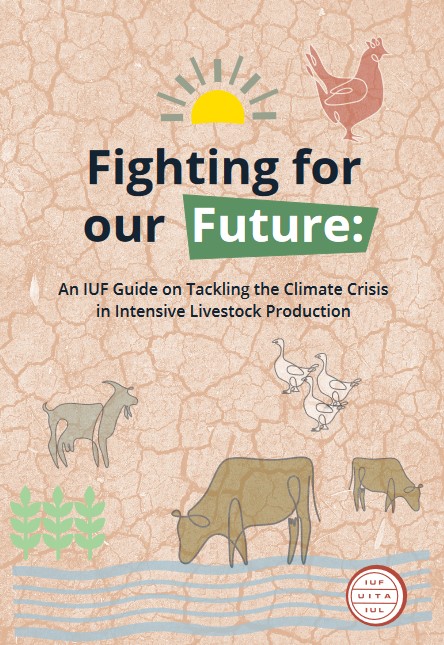Fighting for climate justice for food, farm and hotel workers in the face of climate change
The climate crisis puts the lives and livelihoods of millions of food, farm and hospitality workers at severe risk. As the planet warms, farming practices, food and beverage processing, trade and tourism must change and adapt. The IUF and its affiliates demand to be part of the solution, to negotiate with employers, governments and international institutions. Rights, decent jobs and sustainable communities are at the core of the IUF response. The following resolution was endorsed by the 2017 IUF Congress.
This Congress expresses grave concern that continuously rising global temperatures, combined with the intensification of weather and climate extremes, have a significant impact on the livelihoods of working people across all IUF sectors and in all countries.
Extreme weather such as drought and flooding, cyclones and hurricanes, combined with warmer temperatures and rising sea levels have several effects, including:
- seasonal employment in food, agriculture, tourism & hospitality industries becoming more unpredictable and precarious, leading to more unstable incomes and insecurity;
- rising sea levels threatening tourism in island nations and coastal areas, as well as loss of arable land
for agriculture, forcing climate migration; - climate migrants are increasingly employed in inland agricultural work, informal employment, and in low-waged work in food processing, fisheries and tourism;
- water scarcity, loss of arable land, loss of biodiversity, loss of fish stocks, declining and unstable seasons threaten food security and the right to food and nutrition;
- failure to adapt the work environment to a changing climate is undermining occupational health and safety rights and increasing risk of injury, illness and disease.
This Congress recognizes the important role that progressive tax regimes, incentives to reduce carbon footprints, ‘just transitions’ and ‘green jobs’ can play in addressing some aspects of climate change, while noting that much of climate action promoted by governments, intergovernmental bodies and international agencies fails to address the specific impact of climate change on food, farm and hotel workers. More importantly, the failure to incorporate a rights-based approach and social justice into official climate action means that workers and their communities face a far greater burden in coping with the consequence of these changes.
This Congress also expresses concern that with the rise of right-wing governments, there is a concerted attack on climate science and a reversal of much of the progress made in climate change policy at national and international level over the past decade;
The 27th Congress therefore resolves to:
- increase education and awareness among our members of a rights-based approach to climate change that incorporates economic and social justice;
- intervene politically at all levels of government, wherever possible, to ensure climate change policy incorporates the rights and interests of food, farm and hotel workers;
- support the reduction of carbon emissions in industries in the IUF sectors and ‘just transitions’ that in reality shift the burden of change from workers and ensure the longer-term sustainability of employment and livelihoods;
- include progressive climate action and sustainable employment in collective bargaining;
- promote climate action that mitigates climate migration and protects the rights of climate migrants;
- promote climate action and climate justice that defends the right to food and nutrition and supports a diverse, sustainable agriculture that ensures rural livelihoods and the right to food.

